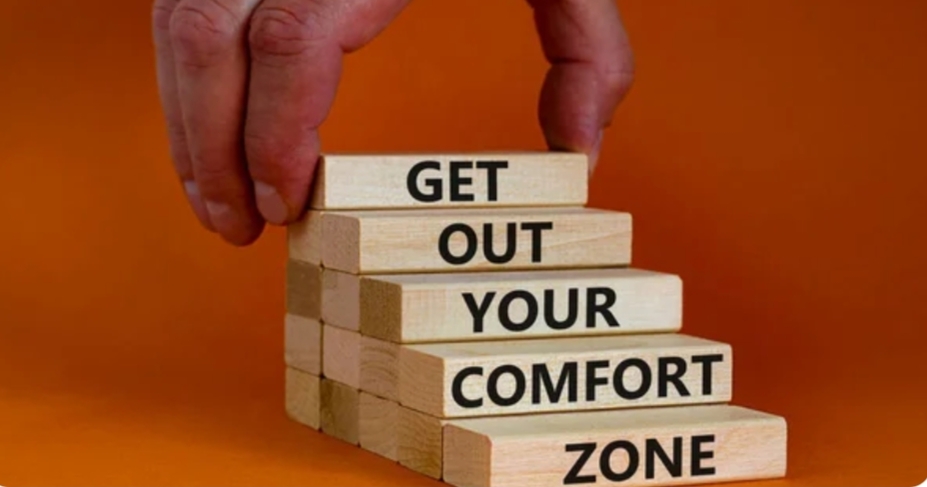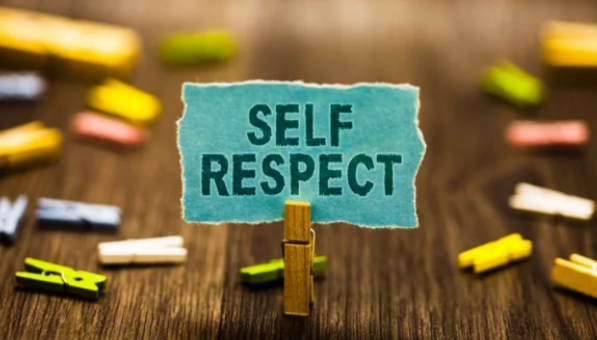
Comfort zones are often perceived as safe havens, places of familiarity where we feel secure and in control. However, while it’s essential to have a space where we recharge and find solace, spending too much time in our comfort zones can lead to stagnation, missed opportunities, and a lack of personal growth. Stepping out may feel daunting, but the benefits can be transformative. Here are several compelling reasons to encourage you to get out of your comfort zone.
1. Personal Growth and Development
One of the primary reasons to get out of your comfort zone is the potential for personal growth. Challenging yourself to try new things, face your fears, or take on new responsibilities encourages learning and self-discovery. When you push your boundaries, you develop resilience, adaptability, and confidence. Each experience helps you grow, making you a more rounded and capable individual.
2. Increased Confidence
Stepping out of your comfort zone can significantly boost your self-confidence. When you confront challenges and succeed, however small the victories may be, it reinforces your belief in your abilities. Accomplishing tasks outside your usual scope, whether it’s public speaking, trying a new sport, or traveling solo, helps build a foundation of self-assurance that spills over into other areas of your life.
3. New Opportunities
Staying within your comfort zone often means sticking to familiar routines and environments, which can lead to missed opportunities. By breaking out of your regular habits, you open yourself up to new experiences, friendships, and career prospects. Embracing the unknown can lead to serendipitous moments that you would have otherwise overlooked, from networking events to unexpected collaborations.
4. Enhanced Creativity
Creativity thrives on new experiences and perspectives. When you challenge yourself to go beyond what you know, you expose yourself to diverse experiences that can spark innovative ideas and solutions. Whether it’s trying a new hobby, traveling to a different culture, or simply changing your daily routine, new stimuli can greatly enhance your creative thinking.
5. Improved Problem-Solving Skills
Dealing with unfamiliar situations pushes you to think critically and find solutions outside of your usual framework. This exposure helps refine your problem-solving skills and enhances your ability to navigate challenges in real-time. Therefore, with each new experience, you build a repertoire of strategies and tools to handle adversity more effectively.
6. Greater Empathy and Understanding
Stepping out of your comfort zone often involves interacting with new people and cultures. This exposure can foster empathy and understanding, allowing you to see the world from different perspectives. Engaging with diverse communities teaches you about their challenges and triumphs, enriching your worldview and promoting a greater sense of connection.
7. Resilience in the Face of Failure
Failure is an inevitable part of life, especially when you’re testing new waters. However, experiencing failure in a safe way can teach you resilience. When you get out of your comfort zone, you may face setbacks, but overcoming them can prepare you for larger challenges ahead. Learning to view failure as a stepping stone rather than an endpoint cultivates a growth mindset that is essential for success.
8. Inspiration to Others
By actively pursuing growth and taking risks, you not only benefit personally but also serve as an inspiration to those around you. Your courage to get out of your comfort zone can motivate friends, family, and colleagues to do the same. In a way, you become a beacon of possibility, encouraging others to embrace their potential and chase their dreams.
How to Get Out of Your Comfort Zone: A Roadmap to Personal Growth
Life begins at the end of your comfort zone. This widely used phrase captures the essence of stepping beyond familiar boundaries in order to experience personal growth, creativity, and self-discovery. While it’s natural to find solace in routine and predictability, pushing your limits can lead to greater fulfillment and new opportunities. Here’s a comprehensive guide to help you get out of your comfort zone and embrace the challenges that await.
Understanding Your Comfort Zone
Before taking action, recognize what your comfort zone entails. It encompasses the behaviors, routines, and environments where you feel secure and at ease. This might include:
- Familiar social settings
- Regular work tasks
- Comfortable hobbies
- Predictable relationship dynamics
While your comfort zone provides safety, it can also stifle personal development and limit experiences. Identifying these boundaries is the first step toward expansion.
1. Acknowledge Your Fears
Stepping out of your comfort zone often involves confronting fears. Whether it’s fear of judgment, failure, or the unknown, these emotions can hold you back. Take time to reflect on what specifically makes you anxious. Write down your fears and contemplate their origins because acknowledging them is the first step toward overcoming them.
2. Start Small
Change doesn’t have to be monumental to be impactful. Begin with small steps that gradually push your boundaries. Here are some ideas:
- Social settings: Initiate a conversation with someone new or attend a social event alone.
- Work environment: Volunteer for a project outside your usual responsibilities or propose an innovative idea.
- Hobbies: Try a new activity, such as art classes, hiking, or public speaking.
These incremental challenges will build your confidence and make larger leaps feel less daunting over time.
3. Set Clear Goals
Define specific, measurable, achievable, relevant, and time-bound goals related to your desire in order to get out of your comfort zone. Instead of a vague objective like “I want to be more social,” aim for “I will attend one networking event this month and talk to at least three new people.” Clear goals provide direction and motivation, making the process of leaving your comfort zone more purposeful.
4. Seek Support
You don’t have to face challenges alone. Share your intentions with supportive friends, family, or colleagues who can encourage and motivate you. Join groups or communities of like-minded individuals who are also striving for growth. Engaging with others can not only ease the discomfort of stepping outside your routine but also provide valuable perspectives and resources.
5. Embrace Discomfort
Stepping out of your comfort zone will inevitably lead to moments of discomfort. Instead of avoiding these feelings, learn to embrace them. Discomfort is a sign of growth. Practice mindfulness techniques, such as deep breathing or meditation, to manage your anxiety. By shifting your perspective, you can view uncomfortable situations as opportunities for development rather than obstacles.
6. Reflect on Your Experiences
After challenging yourself, take time to reflect on your experiences. What went well? What did you learn about yourself? Keeping a journal can be helpful in processing your thoughts and feelings. Reflecting allows you to track your progress, recognize patterns, and celebrate your achievements—no matter how small.
7. Reward Yourself
Acknowledging your accomplishments encourages further growth. After stepping outside your comfort zone, treat yourself to something special, whether it’s a night out, a favorite meal, or a day of relaxation. Rewards reinforce positive behavior and keep you motivated to continue on your journey of self-improvement.
Getting out of your comfort zone is a transformative journey that can lead to incredible growth, deeper connections, and a more fulfilling life. It requires courage, vulnerability, and a willingness to confront fears, but the rewards far outweigh the temporary discomfort. By taking small, deliberate steps, setting clear goals, seeking support, and reflecting on your experiences, you’ll find yourself expanding your horizons in ways you never imagined. Therefore, embrace the discomfort; it’s where the magic happens!









